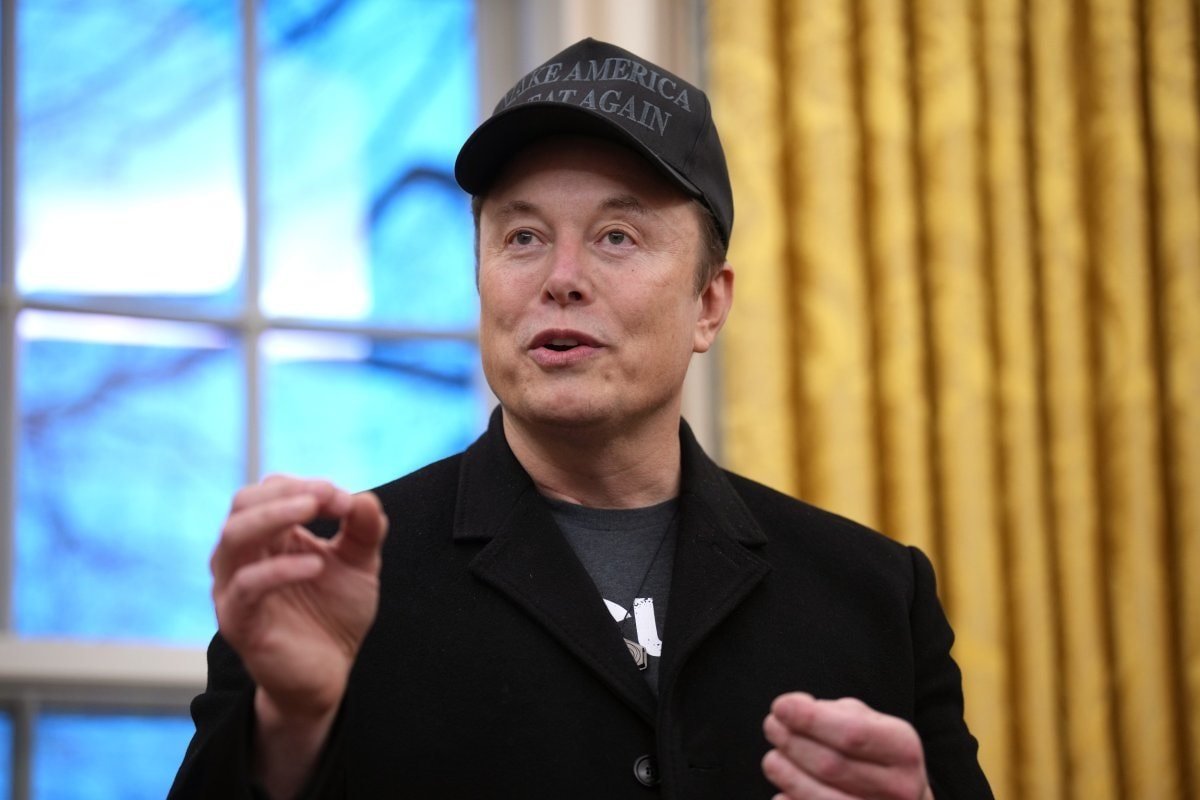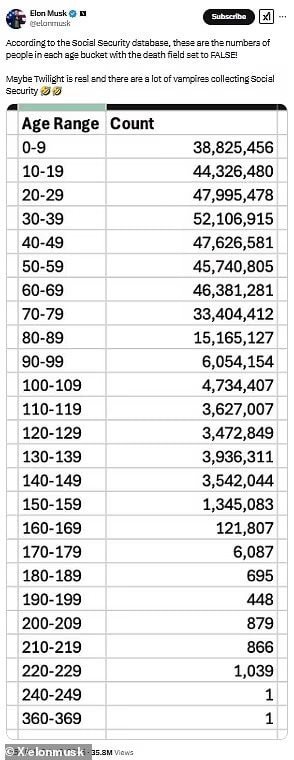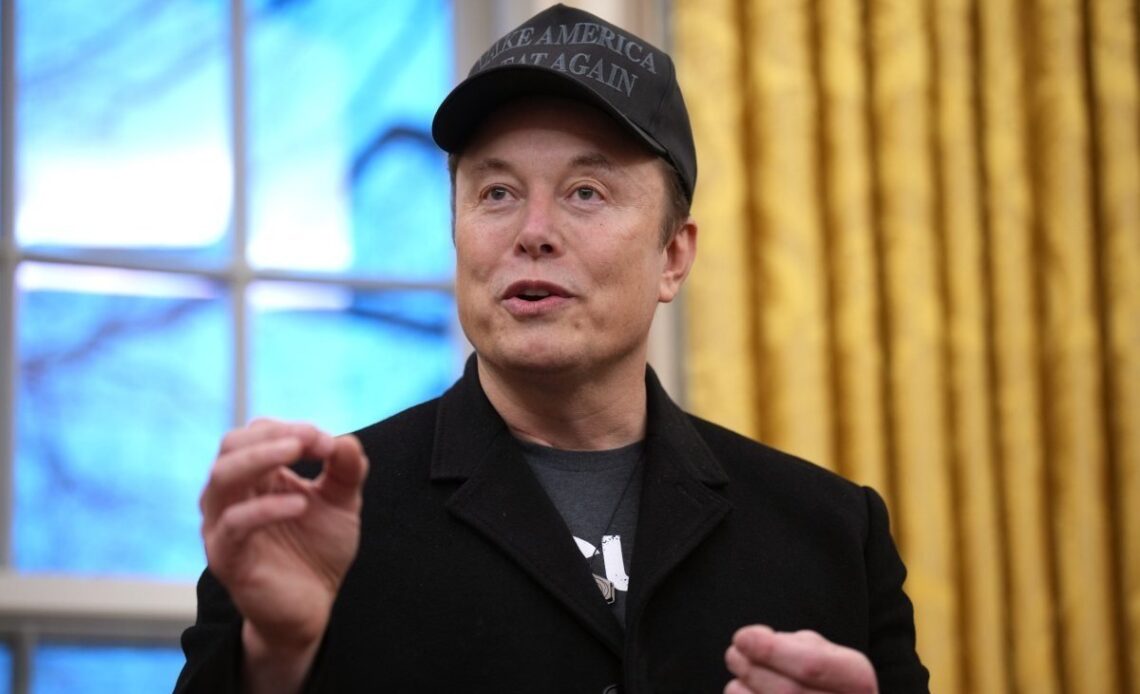In a stunning revelation that has left the world baffled, billionaire entrepreneur Elon Musk recently claimed to have uncovered evidence suggesting that over 20 million Americans aged between 100 and 369 years old are still alive—and, even more astonishingly, receiving Social Security benefits. The claim, which seems to defy logic and human biology, quickly went viral, sparking widespread debate, skepticism, and curiosity. Is this an elaborate hoax, a glitch in government data, or something far more sinister? Let’s dive into the details of Musk’s explosive assertion and explore what it could mean for society.
### **The Claim That Shook the Internet**
Elon Musk, known for his bold statements and disruptive ideas, took to social media to share what he described as “shocking evidence” about the U.S. Social Security system. According to Musk, internal records allegedly show that millions of individuals aged 100 years or older—some reportedly as old as 369—are actively collecting Social Security payments.

Musk’s post included cryptic references to potential fraud within the system, suggesting that these numbers might be indicative of systemic errors, identity theft, or even deliberate manipulation. He urged his followers to scrutinize the data themselves, framing the issue as a call to action against inefficiency and corruption in government programs.
While Musk is no stranger to making controversial claims, this particular statement stands out due to its sheer audacity. The idea of people living well beyond the natural human lifespan raises immediate red flags, prompting many to question whether this is a genuine discovery or simply another example of Musk’s penchant for stirring up controversy.
### **Analyzing the Numbers: Fact or Fiction?**
At first glance, the notion of 20 million Americans aged 100 to 369 strains credulity. To put this into perspective, the oldest verified person in history, Jeanne Calment, lived to be 122 years old. Even with advancements in medical science, the idea of millions of people surpassing this age by centuries is scientifically implausible. So, how can we make sense of Musk’s claim?

One plausible explanation lies in administrative errors. It’s possible that outdated or inaccurate records have led to inflated figures, with some entries failing to account for deaths or properly update beneficiaries’ statuses. Such mistakes could result in payments being issued to deceased individuals—or worse, exploited by bad actors engaging in identity theft or fraudulent activities.
Another theory suggests that Musk may be using hyperbole to highlight flaws in the Social Security system. By exaggerating the numbers, he might aim to draw attention to legitimate concerns about waste, inefficiency, and abuse within the program. For instance, there have been documented cases of Social Security funds being paid to deceased recipients due to bureaucratic oversights. If true, this would underscore the need for greater transparency and accountability in managing taxpayer money.
Finally, some skeptics argue that Musk’s claim is nothing more than a publicity stunt designed to provoke reactions and dominate headlines. Given his history of provocative tweets and unconventional behavior, it wouldn’t be surprising if this were part of a larger strategy to keep himself at the center of public discourse.
### **Skepticism, Outrage, and Curiosity**
As expected, Musk’s announcement triggered a firestorm of reactions across social media and news outlets. Supporters praised him for exposing alleged vulnerabilities in the Social Security system, hailing him as a whistleblower who dares to challenge entrenched institutions. Many echoed his concerns about government inefficiency, calling for reforms to prevent misuse of public funds.

Critics, however, dismissed the claim as absurd and irresponsible. They accused Musk of spreading misinformation without providing concrete evidence to back up his assertions. Some pointed out that such unfounded allegations could undermine trust in critical safety-net programs, potentially harming vulnerable populations who rely on Social Security for survival.
Amid the polarized responses, one thing became clear: Musk had succeeded in capturing the world’s attention. People began digging into publicly available data, searching for clues that might validate—or debunk—his claims. This collective effort highlights the power of social media to spark grassroots investigations and hold institutions accountable, albeit sometimes based on shaky premises.
### **The Implications of Musk’s Allegations**
Regardless of whether Musk’s claim holds water, it raises important questions about the integrity and sustainability of the Social Security system. Here are a few key takeaways:
**Systemic Vulnerabilities** :
If even a fraction of Musk’s allegations prove accurate, it would expose significant weaknesses in how Social Security beneficiaries are tracked and verified. Addressing these issues should be a top priority to ensure taxpayer dollars are used effectively.
**Fraud Prevention** :
Identity theft and fraud pose serious threats to government programs. Strengthening cybersecurity measures and implementing advanced verification systems could help mitigate risks and protect against exploitation.
**Transparency and Accountability** :
Public confidence in Social Security depends on transparency. Regular audits, open access to relevant data, and clear communication about program operations can foster trust and reduce opportunities for misconduct.
**Societal Impact** :
Mismanagement of Social Security funds doesn’t just affect budgets—it impacts real lives. Millions of retirees, disabled individuals, and survivors depend on these benefits to meet basic needs. Ensuring the program’s reliability is essential for maintaining social stability.
**The Role of Influencers** :
Figures like Elon Musk wield immense influence over public opinion. While their voices can shine a light on pressing issues, they also bear responsibility for ensuring their statements are grounded in fact rather than speculation.
### **Could There Be a Kernel of Truth?**
While the idea of 20 million centenarians (let alone supercentenarians) stretches the bounds of reality, it’s worth considering whether Musk’s claim contains a kernel of truth. For example, there may indeed be discrepancies in Social Security records that warrant closer examination. Investigative journalists and watchdog organizations could play a crucial role in verifying Musk’s findings and advocating for necessary reforms.
Moreover, Musk’s assertion serves as a reminder of the importance of vigilance when it comes to safeguarding public resources. Whether intentional or not, his tweet has ignited a conversation about accountability and efficiency—a conversation that deserves continued attention.
### **Lessons from the Controversy**
The uproar surrounding Musk’s claim offers several valuable lessons:
**Question Everything** :
In an era of information overload, critical thinking is more important than ever. Before accepting extraordinary claims, demand evidence and analyze sources carefully.
**Technology Can Help—and Harm** :
Advances in technology enable us to detect anomalies and improve systems, but they can also facilitate fraud and misinformation. Striking the right balance is key.
**Public Figures Have Power** :
Influencers like Musk shape narratives and drive conversations. With great power comes great responsibility; their words carry weight and consequences.
**Reform Is Necessary** :
Regardless of the veracity of Musk’s claim, it underscores the need for ongoing efforts to modernize and secure vital programs like Social Security.
**Stay Informed** :
Engaging with complex topics requires staying informed. Follow credible sources, ask questions, and participate in discussions to contribute meaningfully to societal progress.
### **Separating Fact from Fiction**
Elon Musk’s bombshell claim about 20 million Americans aged 100 to 369 receiving Social Security benefits has undoubtedly captured imaginations and fueled debates. Whether it’s a genuine exposé, a satirical jab at bureaucracy, or simply a misguided attempt to stir controversy remains to be seen. What’s certain, however, is that the underlying issues it highlights—fraud, inefficiency, and the need for reform—are very real.
As we sift through the noise and seek answers, one thing is clear: the conversation sparked by Musk’s tweet has forced us to confront uncomfortable truths about our systems and priorities. Perhaps that’s the true value of his claim—not the sensational headline, but the dialogue it inspires. After all, progress often begins with asking tough questions, even if the initial premise seems far-fetched.
In the end, whether you view Musk’s revelation as groundbreaking or baseless, it serves as a reminder of the importance of accountability, transparency, and critical thinking in navigating the complexities of modern life. And who knows? Maybe someday, advances in science will make living past 100 commonplace—but until then, let’s focus on fixing the problems we can solve today.
